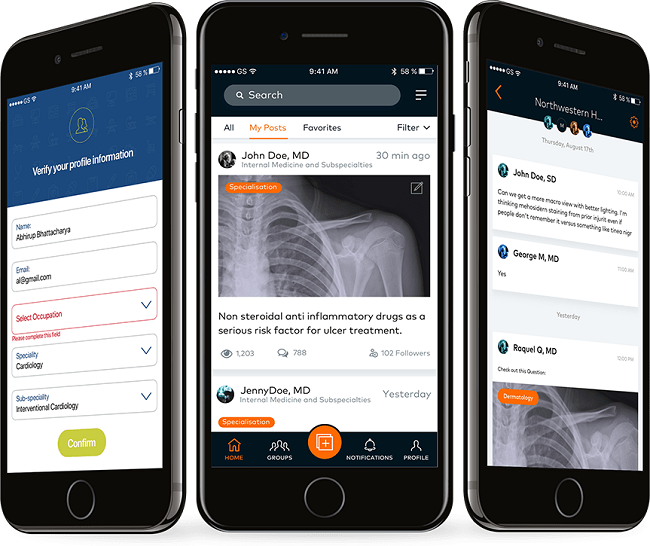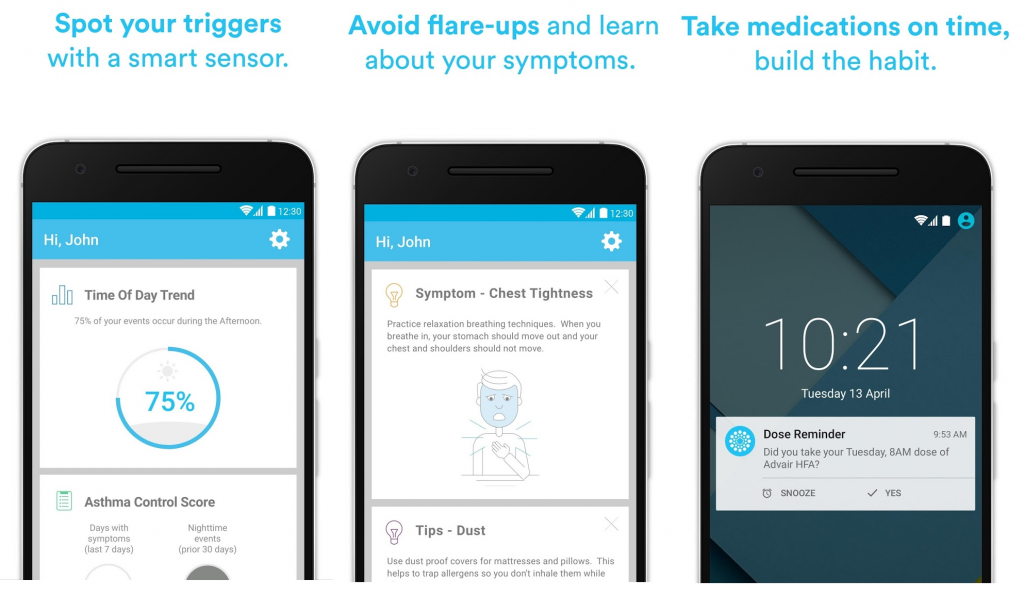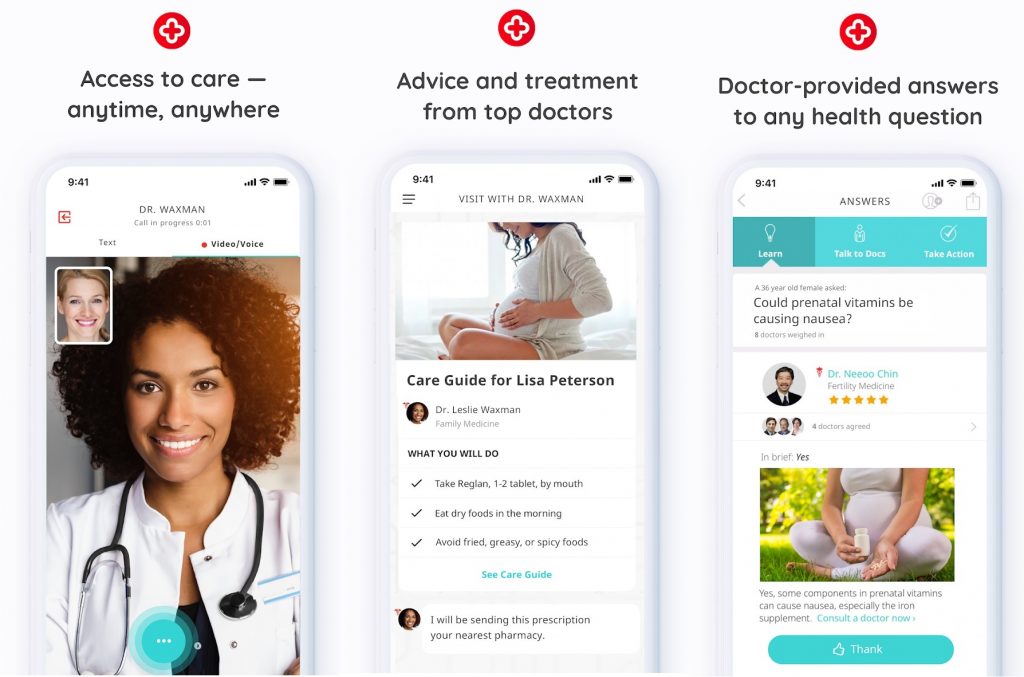The Past: Healthcare Before Mobile Devices
In the last 100 years, we have watched as healthcare has advanced while people continue to struggle with their health. Obesity rates are rising, so much so that the United States has an obesity rate of almost 40 percent, over 60 per cent of Australia’s population is overweight or obese, and India is now home to the world’s largest obese population. Cancer rates are also on the rise, several of which have yet to find a root cause. With the advent of widespread technology use, however, we’ve seen exponential changes in the way we perceive and manager our health and wellness.
For much of the twentieth century, the major impact that technology had on healthcare was data management. Family doctors and other medical professionals once tediously maintain patient records but faced risks such as damage and theft. Now, nearly every aspect of a doctor-patient visit is recorded digitally.
An excellent example of this shift in technology behind data and the relationship that patients have with the healthcare industry is Epocrates, the medical application from AthenaHealth.
Epocrates is unique, in that it was one of the very first applications (apps) released when the App Store was first introduced to the world. This point-of-care medical app provides over a million healthcare professionals with support and a network of trusted consults and providers, identifying and safely reviewing multiple drugs and their characteristics to ensure that medications are distributed and used properly and effectively. In addition, the system is set up to automate many of the tasks once performed manually and to access all relevant data and research for the best possible medical advice.

Read the story of how we collaborated with Athenahealth in redesigning and improving the user engagement of the Epocrates app here.
The app iDoc was tested in 2012 – 2014 to determine if it could improve doctors’ efficiency and effectiveness at locating information within a database of textbooks, the study showed that efficiency in search results increased and subsequently reduced the number of unnecessary tests that doctors and nurses had to perform to find the root cause.
Ten years later, we’ve entered an era where healthcare has grown beyond the walls of hospitals, clinics, and doctor’s offices and is managed in the most ubiquitous place: cell phones.
The Present: The Healthcare of the Tech Age
The global market of applications has surpassed 1 million apps since the App Store first launched in 2008. Users can download free or minimally-priced apps that help them not only track their progress but also help them manage their habits, eat better, and connect with a community of other users for support and encouragement. Similarly, physicians and medical professionals have access to a number of applications that offer not only real-time patient monitoring for more up-to-date health data, such as the AirStrip ONE monitoring app, but that also provides comprehensive and ongoing education about critical insights and advances in their fields, such as Radiology 2.0.
Alongside the growing marketplace of healthcare apps (estimated growth to $111 Billion by 2025), we’ve also seen the rise of wearable technology devices both for patients and doctors: from trendy pedometers like FitBit and clothing that monitors basal temperature, heart rate and blood pressure to apps that manage patient information across regions and offer referral networks of medical professional, apps are often integrated with wearables and other mobile devices to provide a more seamless experience for users.
You can read more about such technologies in our ebook – Digital Transformation in healthcare – the evolving landscape
Benefits of Healthcare Apps
The primary benefit of healthcare apps is the education and peace of mind they provide for patients. Users can access a wealth of resources that help them understand any health conditions they may be experiencing. For example, Propeller Health helps patients not only monitor their asthma inhalers but also sends data about a patient’s use of their asthma attacks and inhaler use directly to their doctor, giving them more accurate, more up-to-date information about their day-to-day health concerns.

Image source : Google Play
In study conducted in 2015, researchers wanted to learn whether apps were actually helping users lead healthier lives. The study showed that many health ”apps help people overcome barriers like a lack of understanding or organization,” which increases their chances of choosing better habits and leading healthier lives. Other key results of the study indicated that users not only had lower BMIs than non-app users, but that they also possessed a greater belief in themselves to actually achieve their health goals.
Other types of health apps offer supplementary health support and goal tracking. Sleep Cycle helps users track not only their sleep patterns, but also determines the best time to wake you up to prevent grogginess from waking up in the wrong sleep cycle. Happify uses scientific methods proven through psychology to increase your mood and overall satisfaction in life. Fooducate not only provides resources to make healthy meals, but it also connects users to a database that contains details about the nutritional content of the food you buy, just by scanning the product barcode with your app.
Apps that allow patients to connect directly with a doctor, such as HealthTap, provide a framework of trust and safety; doctors can request the information they’ll need to provide assistance, and patients can benefit from real-time answers and speedy lab test results in a confidential and secure environment.

Image source : Google Play
The Future of HealthTech and Healthcare Apps
Looking to the very-near future, we will begin to see Artificial Intelligence (AI) play a bigger role in routine medical care. AI can assist doctors in predicting diseases and helping to prevent them. Even something as simple and accurate record keeping or clinical services are repetitive tasks that can be better managed by AI, freeing up time that doctors need to work on more difficult medical cases and vital research.
In short, apps make patient’s lives more fulfilling by providing a medium for them to connect with trusted experts and stay on track with goals that may have otherwise gone unrealized. These apps will continue to evolve as users provide feedback about what works best for their unique needs and by giving them a safe space to share their health and wellness journey.





